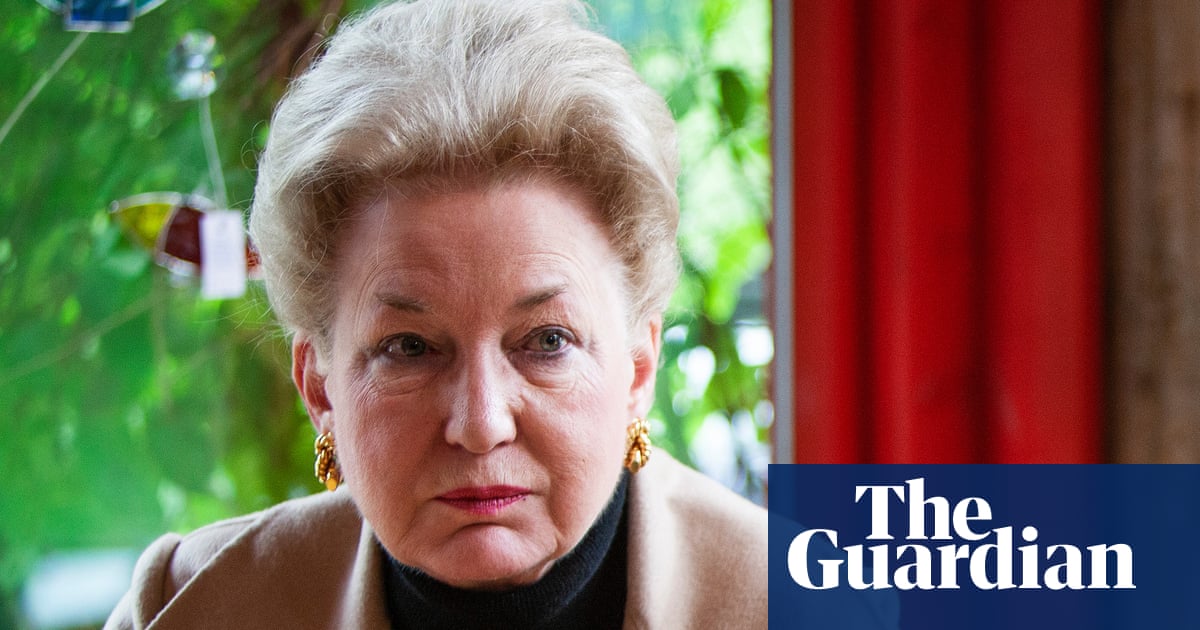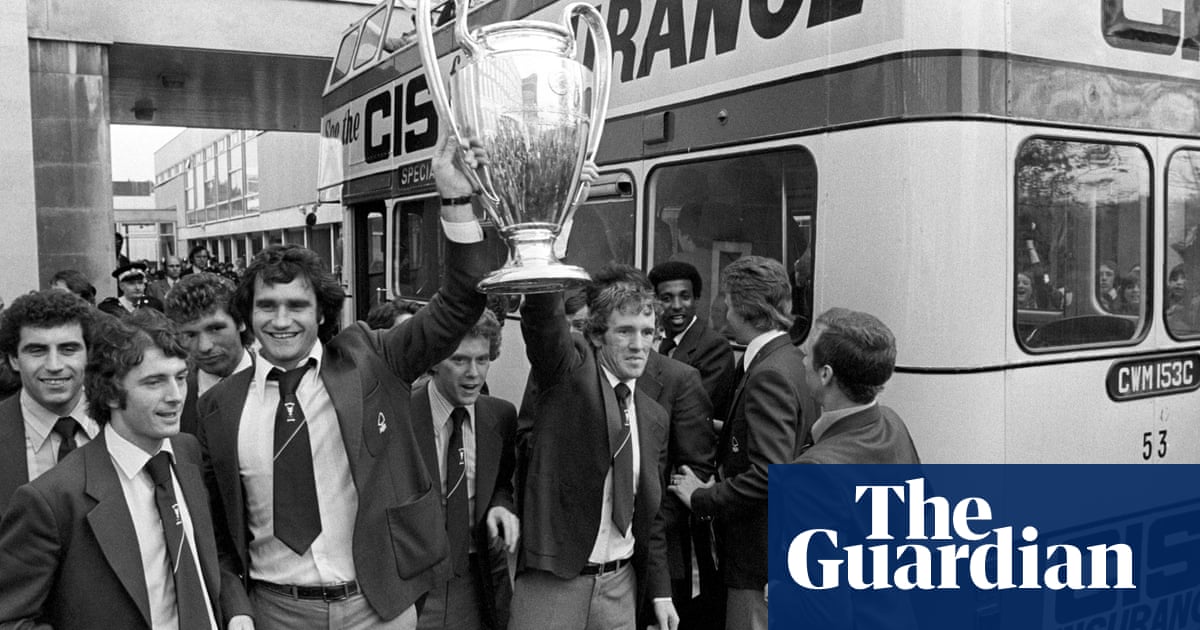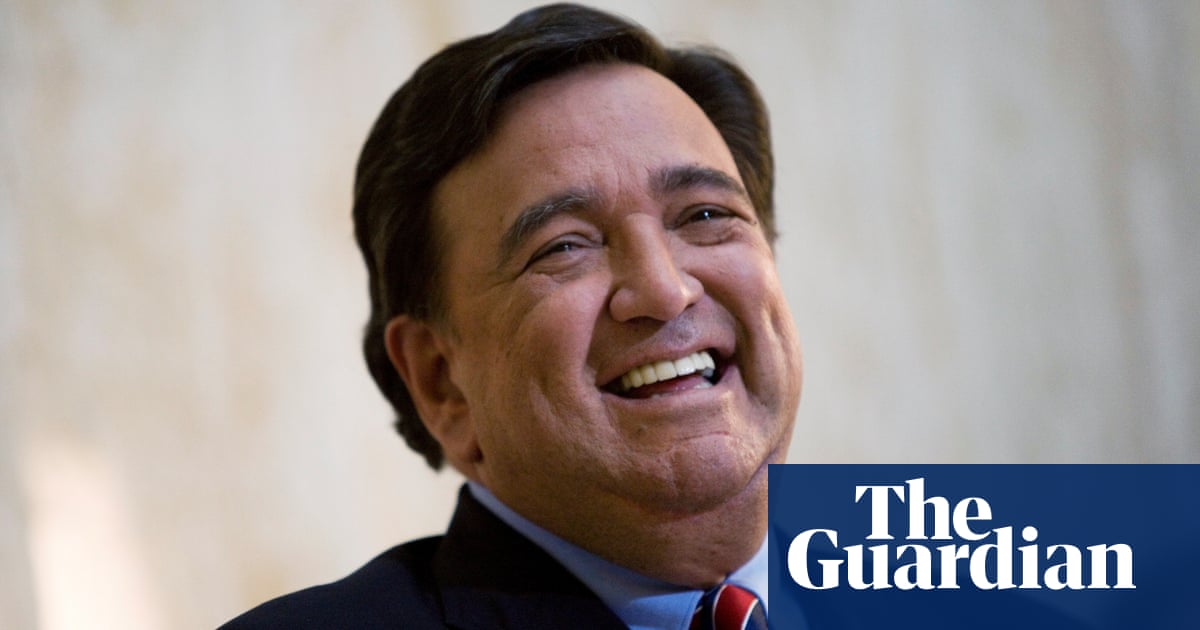
Ron Yeats, the former Liverpool captain who helped to rebuild the club’s fortunes under Bill Shankly in the 1960s, has died at the age of 86.
Liverpool confirmed that Yeats, who had been diagnosed with Alzheimer’s disease, died on Friday evening. “We are mourning the passing of our legendary former captain Ron Yeats,” a club statement on X read. “The thoughts of everyone at Liverpool Football Club are with Ron’s family and friends.”
Yeats joined Liverpool from Dundee United in 1961 for about £20,000, and was immediately made captain by Shankly. The defender would become his manager’s “colossus”, helping the club win the Second Division title in 1962, then winning two Football League titles, their first FA Cup and three Charity Shields.
“Shankly made me feel like a million dollars,” Yeats would recall. “We were coming down the M6, with vice-chairman Sidney Reakes, who had a Rolls-Royce at the time, and me and Bill in the back. I was only 23 and didn’t know what to say. Bill just turned round and said: ‘Ron, I want you to captain the side. You will be my eyes, my ears and my voice on that pitch’, I thought to myself: ‘Bloody hell’. I did that for him, captain Liverpool, for 10 years. It was the best 10 years of my career and my life.”
Famously, after Liverpool beat Leeds United in the 1965 FA Cup final at Wembley, Yeats told the Queen at the trophy presentation he was “knackered” after the energy-sapping 2-1 victory in extra time.
Yeats, who earned two Scotland caps, played 454 games for Liverpool, more than 400 of those appearances as captain – a tally bettered only by Steven Gerrard. After leaving Liverpool in 1971, Yeats took over as Tranmere’s player-manager, a role he held for three years, followed by a brief spell in the United States in his late 30s. During his time at Prenton Park, Yeats guided Rovers to a memorable win over Arsenal at Highbury in the 1973 League Cup.
He returned to Anfield in 1986 as the club’s chief scout, a role he remained in until 2006. Yeats said his proudest achievement in that time was signing Sami Hyypia, a centre-back and leader much like himself. In 2009, Yeats was named an “honorary scouser” by the lord mayor of Liverpool.
Yeats, known as “Rowdy” by the Kop, helped steer the Reds out of Division Two in his first season and to the Division One title inside two years before that historic FA Cup win, forming a formidable partnership with Tommy Smith.
“I was 6ft 2.5 inches and 14.5 stone so when I tackled someone he must have felt it. I wasn’t dirty as far as dirty is concerned. I used to make sure I was there or thereabouts,” said Yeats.
“At that time we had these big centre forwards to play against. I always knew if there was going to be a battle I would win the battle. I wouldn’t come second to nobody.”
Yeats played with Smith for seven seasons, and said of their partnership: “We let the ball go past us, but never the ball and the man.”
The former Reds defender Phil Thompson, who joined Liverpool in January 1971, midway through the season when Yeats departed the club, said in a statement on X: “So sad to hear of the passing of Big Ron Yeats. One of my heroes as a kid and had the pleasure to become his friend. Doesn’t get much better. RIP Big Man.”
Jamie Carragher also paid tribute to Yeats, hailing the Scot as a pioneer of the club. “A giant of a man and a giant of a player,” the former Liverpool defender said on social media. “Everything at Liverpool starts with people like Big Ron. RIP.”
The Tranmere chairman, Mark Palios, who began his playing career under Yeats at the Merseyside club, said: “Ron was the guy who gave me my start and signed me as a professional. He was also instrumental in the careers of so many more – Ronnie Moore, Bobby Tynan, Dickie Johnson, Steve Coppell, just to name a few.
“He was a motivational manager and still a tremendous player, as he showed at Highbury in 1973. A true colossus, as Bill Shankly called him. One of the good guys in football. He will be sorely missed, and my thoughts are with his family.”
Alzheimer’s disease was to take hold in later life, with Yeats feeling the football of his era played its part. “The football itself was incredibly heavy, especially when it was wet,” he said. “Most of the times you headed it you’d just think: ‘Jesus Christ! It’s almost impossible to imagine’.” Staff












